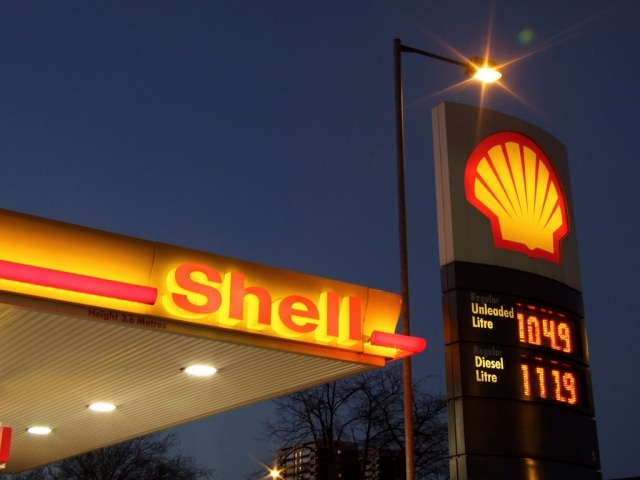In this DeSmog UK epic history article we tell the inside story of how the rising tide of environmentalism in the 1990s caused a “sea change” at oil behometh Shell.
The environment movement in 1997 appeared at its most confident and confrontational. In Britain, Greenpeace launched an audacious and effective international media campaign against Shell after the oil company was given permission by the British Government to sink a huge North Sea storage bouy into the depths of the Atlantic Ocean off the west coast of Scotland.
Green activists sailed out and occupied the buoy for more than three weeks, creating a live media story that captured the hearts of the nation’s viewers.
Sea Change
While the environmentalists overestimated the amount of oil pollution that would have been caused, the campaign was nonetheless successful. Shell decided to reuse much of the steel in constructing a new facility at Stavanger in Norway.
“There was a sea change in Shell in 1997 after Brent Spar,” a senior Shell executive me. “It was, ‘oh God, we’re just making a complete mess of the way we managed external issues’.”
He added: “The group hadn’t thought it necessary to consult or to discuss, you know, see what people thought about it, that sort of whole process of engagement was missing.”
The oil company had come to realise that it could no longer ignore the concerns of the public, even where the company genuinely felt it was doing the right thing.
Shareholder Pressure
This revolution in thinking inside one of the six major global oil companies coincided with a concerted campaign by British environmental groups, including Greenpeace and Friends of the Earth, to exert pressure on Shell and BP shareholders so they would, in turn, force the oil companies to abandon the Global Climate Coalition.
The Coalition was a corporate lobby group set up to oppose immediate action to reduce greenhouse gas emissions. It was formed in response to the creation of the UN Intergovernmental Panel on Climate Change in 1989.
Sir Martin Jacomb was chairman of the Prudential—an international financial services group—in March 1997 when the insurer held 3.8 percent of Shell’s shares. This made it Shell’s largest single investor.
Environmentalists turned up at the Prudential shareholders’ meeting, demanding the company support a resolution to the Shell annual general meeting.
This resolution would force the oil executives to produce a fully audited environmental report, and also conduct a detailed investigation into the company’s suspected involvement with the murders and human rights abuses that had taken place around the Ogoni oil fields in Nigeria.
‘Mankind Depends on Fossil Fuels’
Sir Martin, a British American Tobacco banker, told the campaigners he was well aware of the dangers of climate change. “We are absolutely committed to sustainable development. There is no difficulty about that,” Sir Martin said.
“But the idea that one can stop global warming by stopping consumption of fossil fuels, when mankind depends on it, is unrealistic,” he continued. “We have got to find economic and sustainable ways of using such fuels.”
Contemporary news reports suggest that Prudential managers have met senior Shell executives “several times since controversy erupted over the Brent Spar oil platform and the Nigerian Ogoni oil fields”.
Sir Martin refused to bow to the pressure from the campaigners. “We will not be voting for the resolution. It implies interference with the board in the management of the company. We think it is very, very important not to dilute the responsibility of the board for conducting business seriously.”
But a remarkable victory was about to be delivered by the environmentalists’ offensive, which was designed to tear apart the powerful union of international oil monopolies within the Global Climate Coalition. And two decades later, Sir Martin would reappear in our story as a founding trustee of Lawson’s Global Warming Policy Foundation.
Up next on DeSmog UK’s epic history series is a look at what happened when former BP boss Lord Browne called for government regulation to reduce carbon emissions.
Photo: Lee Jordan via Flickr
Subscribe to our newsletter
Stay up to date with DeSmog news and alerts







